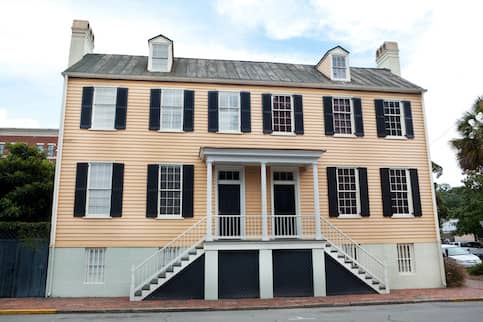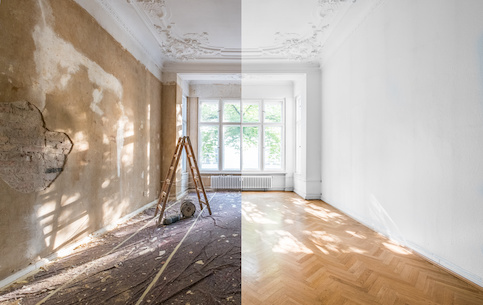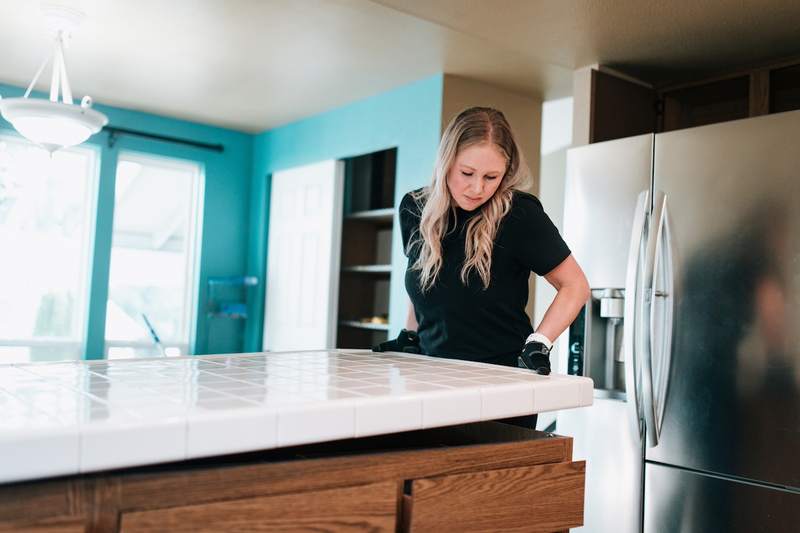With an FHA loan, you can purchase a property with lower credit score and down payment requirements, saving you money upfront. Naturally, if you want to get into real estate investing or purchase a large, multiunit property, you might want to take advantage of an FHA loan’s flexible credit requirements.
FHA restrictions and different definitions of “multifamily home” may make this financing option somewhat complicated for an investor. But, under the right circumstances, an FHA multifamily loan may be useful. Let’s break down how an FHA multifamily loan works, review the definition of a multifamily home and explore alternative financing options.
Can You Buy A Multifamily Home With An FHA Loan?
You can and you can’t – it depends on the definition of a multifamily home.
An FHA loan is typically used to purchase a primary residence where the owner intends to live for most of the year. Generally, the Federal Housing Administration (FHA) only backs funding for properties that fit the definition of a single-family home.
However, it’s important to note that the U.S Department of Housing and Urban Development (HUD) defines a “single family” dwelling as a dwelling with anywhere from one to four units.
See What You Qualify For
Buy A Home
Discover mortgage options that fit your unique financial needs.

Refinance
Refinance your mortgage to have more money for what matters.
Tap Into Equity
Use your home’s equity and unlock cash to achieve your goals.
FHA Loans For Rental Properties With 4 Units Or Less
To buy a multifamily property with a maximum of four units, you must apply for an FHA residential loan. Technically, this is still considered a single-family property under HUD guidelines, but multiple families can live in the separate units.
To qualify for FHA financing and fulfill its primary residence requirement, the borrower must live in at least one of the property’s units and can rent out the remaining units.
Living in the property you’re renting out, also known as house hacking, can be a financially savvy way to get started with real estate investing – but it’s not for everyone. You’ll need to factor in your goals and needs before trying this strategy.
The Pros And Cons Of Using FHA Loans To Buy Multifamily Homes
Using an FHA loan to purchase a multifamily home with up to 4 units may benefit prospective home buyers, but they should weigh the pros and cons.
Pros
- Easier to get approved: Because FHA loans are backed by the U.S. government, lenders are more willing to provide loans to home buyers who would have struggled to meet conventional mortgage requirements due to past credit issues.
- Lower credit score requirements: FHA loans require a 580 credit score or at least a credit score of 500 if you can make a 10% down payment. The FHA credit score requirement is much lower than the minimum 620 credit score requirement for a conventional loan.
- Lower down payment: FHA loans allow you to make a 3.5% down payment, and you may qualify for down payment assistance programs from your state housing financing agency.
- Open to all applicants: Department of Veterans Affairs (VA) loans require proof of military service. U.S. Department of Agriculture (USDA) loans require borrowers to only purchase homes in eligible rural areas. FHA loans, however, are open to all borrowers, including borrowers who want to purchase a home in cities and rural areas.
Cons
- Mortgage insurance premium (MIP): FHA loans require borrowers to pay one-time, upfront MIP and annual MIP, which adds to the long-term cost of borrowing.
- Tougher appraisal process: A lender usually requires an appraisal before you can buy a home. With FHA loans, you must use an FHA-approved appraiser. FHA-approved appraisers are harder to find, and the standards for FHA appraisals are typically more stringent than conventional mortgage appraisals.
- Higher interest rates: FHA loans offer competitive interest rates for your credit score, but the rates may be higher than conventional loan rates for borrowers with higher credit scores.
FHA Loan Limits
Here’s another factor to consider: FHA loans limit the amount of money you can borrow. FHA loan limits are determined by the county where a property is located and divided into low-cost and high-cost counties. Here are the FHA loan limits for 2023:
| Low-Cost County | High-Cost County |
|---|---|---|
1-Unit Home | $472,030 | $1,089,300 |
2-Unit Home | $604,400 | $1,394,775 |
3-Unit Home | $730,525 | $1,685,850 |
4-Unit Home | $907,900 | $2,095,200 |
The limits for conventional loans are higher. For example, In a low-cost county, the conventional loan limit ranges from $726,200 for a one-unit home to $1,396,800 for a four-unit home. In high-cost counties, the FHA loan limits are the same as the conventional loan limits, but the property values are higher, so borrowers may need to save for a larger down payment or borrow more money to purchase a home.
FHA Multifamily Loans For Real Estate Investors
Real estate investors can’t purchase a multifamily home with an FHA loan if the property has 5 or more units. But the U.S. Department of Housing and Urban Development (HUD), which oversees the FHA, allows the FHA to insure mortgage loans for the following for-profit and nonprofit multifamily properties:
- Health care facilities: The FHA insures financing and refinancing for health care facility projects under Sections 232 and 242 of the HUD National Housing Act. FHA health care loan programs expand access to affordable public health care and support HUD’s community development mission.
- Existing multifamily rental housing: Sections 207 and 223(f) can be used to finance the purchase or refinancing of multifamily rental housing. A property that needs substantial renovation won’t qualify for this financing, and HUD won’t approve the mortgage until the critical repairs are complete.
- Rental and co-op housing: The FHA will insure mortgages for the construction or rehabilitation of rental and co-op housing made available to moderate-income families, older adults and people with disabilities.
- Housing for older adults: Section 202 helps finance the purchase or refinancing of properties used to provide affordable housing for lower-income older adults. Properties can be financed with or without renovations. Only nonprofits are eligible to apply.
- Housing for people with disabilities: Section 811 provides financing to purchase rental housing for lower-income people with disabilities. The program also provides rental assistance to state housing agencies to keep costs low for tenants. Only nonprofits are eligible to apply.
Find A Mortgage Today and Lock In Your Rate!
Get matched with a lender that will work for your financial situation.
Alternative Multifamily Mortgage Options
FHA loans aren’t the only option for real estate investors. Explore other loan options below.
Conventional Loan
You can use a conventional loan to buy a single-family (one to four units) or multifamily (five or more units) property and use either as an investment property. With a conventional mortgage, the property doesn’t need to be your primary residence, so you don’t have to live in one of the units.
However, a conventional loan’s down payment can be 15% – 30% of a home’s purchase price. The size of the down payment is affected by the number of units and the intended property use. The good news is that you can avoid private mortgage insurance (PMI) with a higher down payment, and you may get a lower interest rate than you would with an FHA loan.
Jumbo Loan
Jumbo loans provide financing for homes that exceed your area’s loan limits. The loan typically has higher credit score and down payment requirements, as well as a higher interest rate. If a jumbo loan sounds like a good fit, it may be worth researching how much more it may cost in the long term.
Commercial Loan
A commercial mortgage is typically used to purchase business-related properties, such as a storefront, shopping center or company headquarters. Lenders usually charge higher interest rates on commercial loans because loan repayment generally depends on the profits it generates. Lenders may even consider the amount of foot traffic in the area to help estimate a company’s potential earnings.
FAQs About FHA Multifamily Loans
Looking for more help with FHA multifamily loan questions? We have answers.
Can I have two FHA loans?
Typically, borrowers can only have one outstanding FHA loan at a time. But under certain circumstances, a second FHA loan is allowed, including if you’re relocating and haven’t sold your home yet, you’re going through a divorce, your number of dependents has increased or you are co-signing an FHA loan.
Can I get a commercial FHA loan?
The FHA doesn’t offer commercial loans. But you may be able to use an FHA multifamily loan to buy a mixed-use property, as long as at least 51% of the property is designated for living space.
Do I need any special paperwork to apply for an FHA loan?
Applying for an FHA loan is like applying for a conventional loan. Your lender will require W-2s, 1099s, tax returns or other proof of income and employment.
The Bottom Line
Typically, only owner-occupied investment properties qualify for an FHA loan. You can purchase a larger property with five or more units using FHA multifamily financing as long as the purchase qualifies under the FHA’s exceptions to the owner-occupied rule. If the property you’re interested in meets FHA multifamily requirements, you may qualify for financing. Otherwise, you may need to consider alternative loan options or a smaller property.
Find out if an FHA loan is right for you.
See rates, requirements and benefits.

Hanna Kielar
Hanna Kielar is a Staff Writer for Rocket Companies with a focus on personal finance, automotive and personal loans. She has a bachelor's degree in professional writing from Michigan State University.












